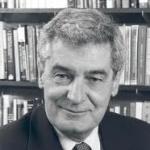Robert E. Lucas Jr.

Robert Emerson Lucas, Jr. is a Professor of Economics at the University of Chicago. He was awarded the Nobel Prize in economics in 1995 for having developed and applied the hypothesis of rational expectations.
Robert Lucas had a great influence on macroeconomic research and macroeconomic modeling. He argued that a macroeconomic model should be built as an aggregated version of microeconomic models. He developed the "Lucas critique" of economic policymaking, which holds that relationships that appear to hold in the economy, such as an apparent relationship between inflation and unemployment, could change in response to changes in economic policy. This led to the development of neoclassical and New Keynesian economics and the drive towards microeconomic foundations for macroeconomic theory.
Lucas's pioneering work has created an entirely new field of econometrics, known as rational expectations econometrics. There, the rational expectations hypothesis is used to identify the most efficient statistical methods for estimating economic relations where expectations are the key components. A number of researchers have subsequently made important contributions to this new field.
In addition to his work in macroeconomics, Lucas has made outstanding contributions to investment theory, financial economics, monetary theory, dynamic public economics, international finance and, most recently, the theory of economic growth. In each of these fields, Lucas's studies have had a significant impact; they have launched new ideas and generated an extensive new literature.
http://home.uchicago.edu/~sogrodow/
http://nobelprize.org/nobel_prizes/economics/laureates/1995/